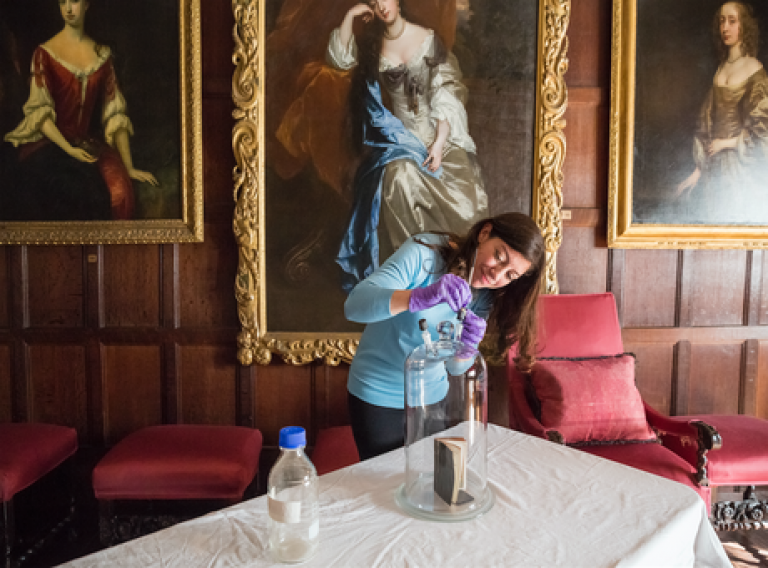ISH research on smells of the past receives widespread media coverage
28 October 2016

UCL ISH PhD student Cecilia Bembibre has recently received significant media exposure for her research on the smells of the past. Cecilia has been interviewed for CNN, BBC, Atlas Obscura among others.
Cecilia’s research looks at the role of olfaction in heritage, from identifying smells with historic value to exploring how Heritage Science can contribute to understanding and preserving them.
The research has been featured in:
CNN en español - http://cnn.it/2drm07D
BBC - http://www.bbc.co.uk/programmes/p04d76dl
Atlas Obscura - http://bit.ly/2cu5aC0
W Radio - http://bit.ly/2dIbgNk
Five historic smells from National Trust property Knole House are the focus of Cecilia’s case study work involving extraction, analysis and archival of heritage smells.
While the fields of preserving our history in audio and visual forms are well addressed, preserving smells of the past is something that we know very little about. Our vocabulary to talk about smells is therefore limited and Cecilia’s research will also look at identifying the words to characterise heritage smells via sensory evaluation and text mining of historic sources.
Cecilia’s chosen methods for the analysis of volatile organic compounds (VOCs) include gas chromatography with mass spectrometric detection, preceded by solid-phase micro-extraction (SPME). Gas Chromatography Time of Flight Analysis (GC-TOF) and gas chromatography analysis with olfactometric detection (GC-O) are also used. Olfactory information generated via panel description complement the chemical data, and smellwalks with the public explore how historic odours affect the ways in which people interact with heritage sites.
The project partners for Cecilia’s research are the National Trust and Odournet Group.
Commenting on her research, Cecilia Bembibre said:
‘Smells play a powerful role in our daily lives and individual memories can be considered part of our intangible cultural heritage, not only for their own value, but through their connections to language, tradition and tourism.
“Researching our olfactory past, and its connections to the present, will help us identify ways to understand and protect our multisensory heritage.”
Notes to editors:
For media enquiries please contact Alex Blackburn on a.blackburn@ucl.ac.uk or 0203 108 9860
 Close
Close

